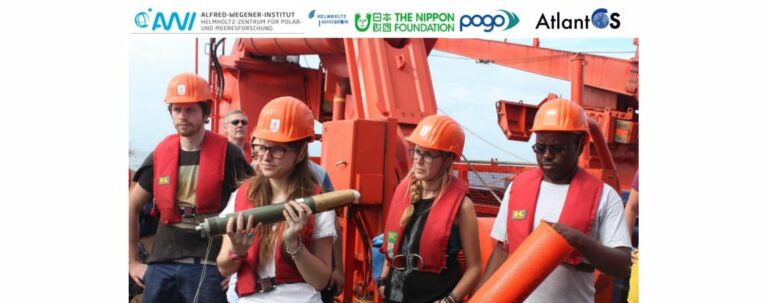The South North Atlantic Training Transect 2019 Floating Summer School, a sort of elite summer school for upcoming scientists who are truly committed into the study of the ocean, took place from 2 to 29 June 2019.
On a voyage from Antarctica to Bremerhaven, Germany, the R/V Polarstern’s team of scientists and students tried to better understand why water temperatures are rising in the deep ocean. The students (all talented scientists themselves) learned how to monitor changes in the ocean and climate — methods they can take to their home countries, which are already feeling the impacts of climate change.
23 Students from 20 countries, led by a team of renowned scientists from Ireland, Portugal, New Zealand, Germany and South Africa, helped to collect new data to better understand climate change and its impacts.
One of the students, Mara Gomes from MARE (Portugal) stated that the teaching experience on the Polarstern was by far the one from which she learned the most, not only scientifically but from a social perspective. The participation of experts in different science and technology fields and curious young scientists was made this expedition a life-changing experience, both for teachers and students. Motivated by the same need to protect our blue planet, this initiative also served to reinforce their willingness in never stop exploring the oceans.
Listen to what other students experienced in the audio clip available here.
The SoNoAT 2019 programme comprised a pre-cruise training (land based) in Punta Arenas, at the southernmost tip of Chile, at the end of May 2019. The research cruise left Port Stanley, Falkland Islands, on 2 June 2019 and ended in Bremerhaven, Germany, on 29 June 2019.

